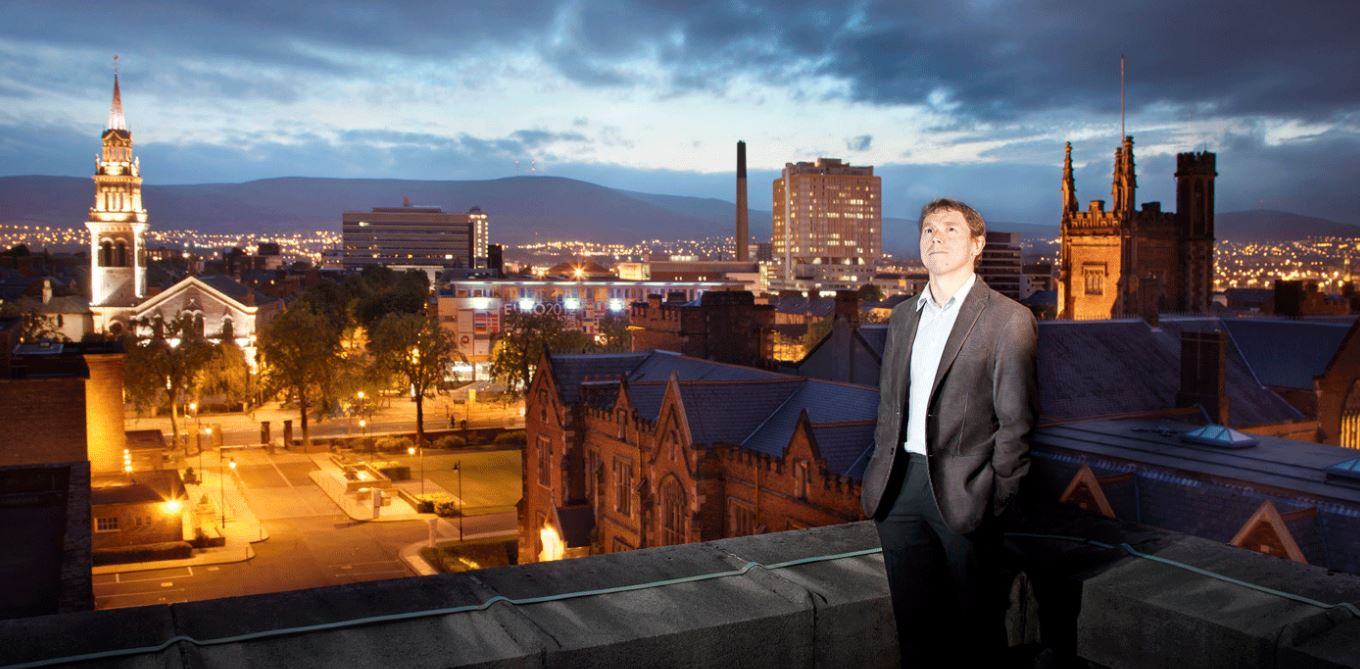QUEEN’S ACADEMIC ANNOUNCED AS WINNER OF HERSCHEL MEDAL BY ROYAL ASTRONOMICAL SOCIETY 
08 January 2021
A Queen’s University astronomer has been announced as the winner of a prestigious award from the Royal Astronomical Society.
Professor Stephen J Smartt will be awarded the Herschel Medal, which is presented to leading academics for a single investigation, or a series of closely linked investigations, of outstanding merit.
Based at the Astrophysics Research Centre at the School of Mathematics and Physics, Professor Smartt leads teams that scan the sky with large digital cameras to find anything that rapidly changes.
He studies supernovae and how the most massive stars die and enrich the universe in chemical elements. He has directly discovered supernova progenitor stars, measured the energy of unusually luminous explosions and shown that neutron star mergers are powered by the radioactive decay of the heaviest elements.
Professor Smartt, a PhD graduate of Queen’s (1996) who has worked at the University since 2004, said:
"I’m thrilled to receive the Herschel Medal from the Royal Astronomical Society. I know many of the previous winners, whom I respect very much, and I’m honoured to be a recipient.
“It recognises not just my contribution to the field, but the work of my team at Queen’s and current and former students and postdoctoral researchers.”
The Royal Astronomical Society announced the winners of this year’s medals and prizes, awarded to scientists around the world for significant achievements in the fields of astronomy and geophysics, at an online event. The winners will be invited to collect their awards at the RAS National Astronomy Meeting in July.
Royal Astronomical Society President Professor Emma Bunce, said:
“I’m delighted that we can recognise the wealth of talent in astronomy and geophysics through our prestigious awards and medals.
“In the midst of a challenging time, we should not lose sight of the achievements of the stars of our science community, inspiring us by answering the deep questions about the earth beneath our feet and the universe around us. My congratulations to all the winners!”
Full citation
Professor Stephen J. Smartt has made major contributions to our understanding of transient phenomena through his work in ground-breaking time-domain surveys. He is a leader in identifying and studying supernova progenitors, and he and his team were among the first to measure the masses and luminosities of the massive stars that die as core-collapse supernovae, thereby providing crucial tests of late-stage high-mass stellar evolution, of explosion models, and of stellar nucleosynthesis.
He and his group have discovered entirely new categories of eruptive objects, including extremely luminous ‘ultra-bright’ transients. He played a central role in the discovery and interpretation of the first electromagnetic counterpart to a gravitational-wave source, and led the 2017 Nature paper that showed that the merging neutron stars generated a kilonova outburst, powered by the radioactive decay of r-process nuclides. This work provided the definitive optical-domain evidence that neutron-star mergers produce gravitational waves and radioactively-powered kilonovae, and are a nucleosynthetic source of the r-process elements.
A pioneer of the new and burgeoning fields of high-cadence digital sky surveys and rapid data processing; a leader of both his own active research group and in international projects and consortia; and one of the most accomplished astronomers of his generation, Professor Smartt is an exceptionally worthy honouree “for investigations of outstanding merit in observational astrophysics”.
For these reasons, Professor Stephen Smartt is awarded the Herschel Medal.
Additional awards and recognitions
Last year Professor Smartt received the highest recognition of scientific endeavour in the UK, being elected a Fellow of the Royal Society (FRS) 2020.
He is a Member of the Royal Irish Academy and a Leverhulme Prize winner.
In 2018 he was awarded the George Darwin lectureship from the Royal Astronomical Society and the Royal Irish Academy’s Gold Medal in the physical and mathematical sciences.
Media enquiries should be addressed to the Communications Office at Queen’s University Belfast.
Back to Main News
Top of Page